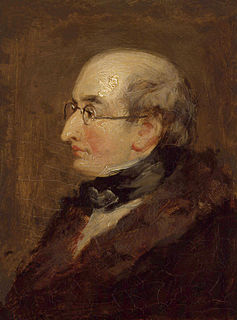A Quote by Hilary Kornblith
I believe, that empirically informed approaches to the question have issued in more illuminating answers than the old armchair approaches. But I think that it would be a terrible mistake to give up on addressing normative questions in epistemology.
Related Quotes
Epistemology now flourishes with various complementary approaches. This includes formal epistemology, experimental philosophy, cognitive science and psychology, including relevant brain science, and other philosophical subfields, such as metaphysics, action theory, language, and mind. It is not as though all questions of armchair, traditional epistemology are already settled conclusively, with unanimity or even consensus. We still need to reason our way together to a better view of those issues.
I am concerned about epistemic normativity, and I don't think that it is just a hangover from a priori and armchair approaches. Some ways of forming beliefs are better than others, and epistemologists of all stripes, I believe, have a legitimate interest in addressing the issue of what makes some of these ways better than others.
Internalist approaches to epistemology, I believe, have a great deal of intuitive appeal. Internalists believe that the features in virtue of which a belief is justified must somehow be internal to the agent. On some views, this amounts to the claim that these features must be accessible to introspection and armchair reflection. On others, it amounts only to the claim that they must be mental features.
Most people believe that great leaders are distinguished by their ability to give compelling answers. This profound book shatters that assumption, showing that the more vital skill is asking the right questions…. Berger poses many fascinating questions, including this one: What if companies had mission questions rather than mission statements? This is a book everyone ought to read—without question.
I would suggest two approaches to begin the leadership journey in earnest. First would be to ask oneself, in every interaction with others over the course of a single day: How can you best serve this person? Another approach would be to attempt, over the course of a single day, to reframe your declarative statements into questions. The thoughtful use of questions can be transformational. In my experience, most people find these exercises more challenging - and more rewarding - than they would have imagined.
In other philosophies, my questions would get answered to some degree, but then I would have a follow-up question and there would be no answer. The logic would dead-end. In Scientology you can find answers for anything you could ever think to ask. These are not pushed off on you as, 'This is the answer, you have to believe in it.' In Scientology you discover for yourself what is true for you.
There's a shift of these young artists who have been brought up, educated, with these media around them. If you have a question, if you have a doubt, you go to the Internet, for example. And you will get thousands of answers to your questions. All of this will proliferate more kinds of questions and more kinds of answers.
I'm so grateful for Living the Questions. These progressive voices offer less rigid and more expansive approaches to Christian faith, and make room for people who practice critical thinking and question the gatekeepers. They help us see that questioning the gatekeepers is exactly what Jesus was all about.































